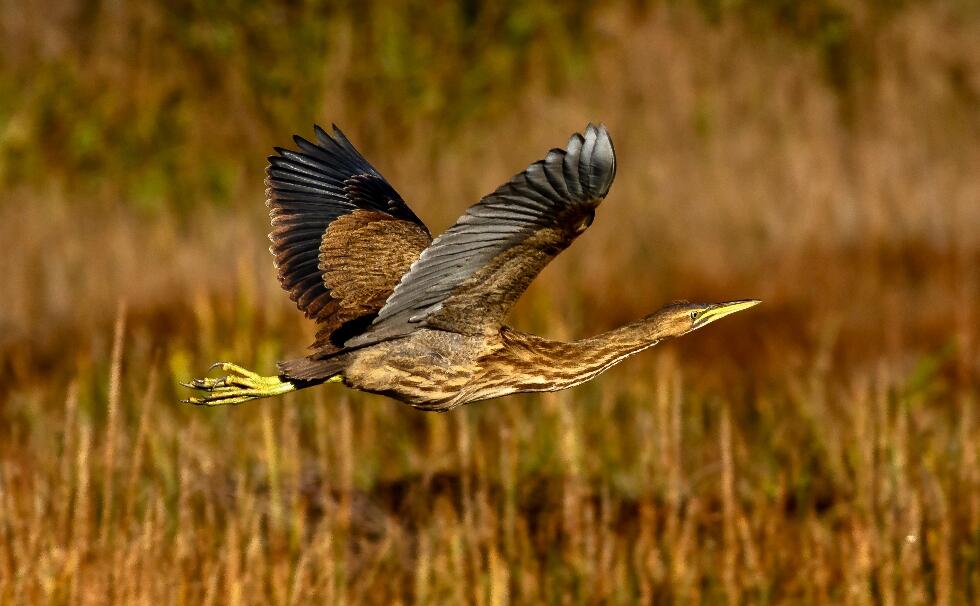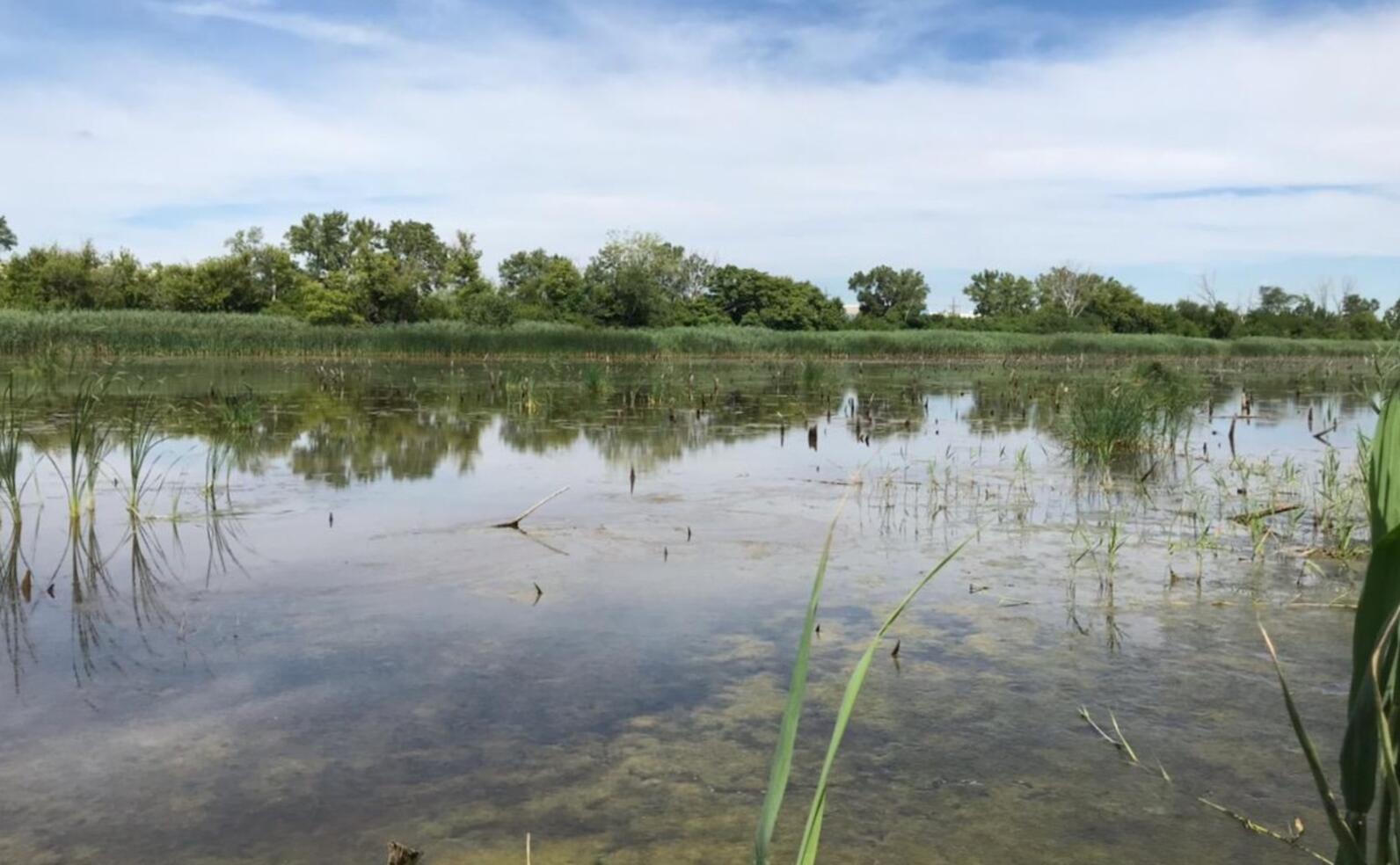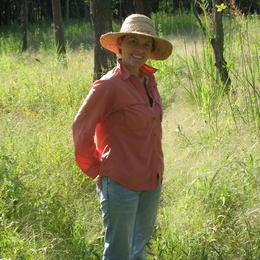Wetlands are amazing natural resources. But tell that to the U.S. Supreme Court, who stripped federal protections for most wetlands across the country last year, including right here in Illinois. This week is the one-year anniversary of the landmark decision in Sackett v. EPA, and a stark reminder that Illinois’ wetlands remain vulnerable to destruction without state-level protections.
Before the expansion of urban and agricultural development, Illinois was covered with wetlands — areas of land covered with shallow water that provided rich habitat for an abundance of creatures. As we’ve come to lose 90 percent of our historic wetlands, we’ve also lost many of the species that depend on them. Take for instance Great Lakes populations of breeding marsh birds, which have declined significantly over the past 30 years. If you visit an Illinois marsh, you can still hear the unique, booming song of the American Bittern. But this state-endangered species is hanging on by a thread.

Nearly 40 percent of the state’s threatened and endangered plants and animals rely on wetlands for some part of their lifecycle. Protecting and conserving our wetlands is key to helping vulnerable species like the American Bittern recover. Audubon Great Lakes is working with partners to restore wetlands in places like Illinois’ Calumet Region, which covers much of Chicago’s Southeast Side. Now dominated by industry, the Calumet region was once sprawling with wetlands. We’ve worked hard to bring some of these wetlands back, and we’re starting to see the results. Marsh bird population declines are stabilizing, and in newly restored wetlands we’ve begun to see increases in the number of breeding individuals for several species.
It's no exaggeration to say that wetlands are amazing. They’re some of our most incredible natural spaces not only because of the habitat they provide for wildlife, but because of the services they provide to our communities. Projects like ours in the Calumet region are helping to solve numerous environmental problems facing local communities and we need them even more as the impacts of climate change are more fully felt.
Wetlands don’t always look like much (sometimes they’re only wet seasonally!), but there’s a lot going on under the surface of these marshes, swamps and bogs. Wetlands act as giant water filters, keeping harmful pollutants from entering our drinking water. One acre of wetlands can store up to 1.5 million gallons of water. Every single county across Illinois has experienced flooding severe enough to warrant a Presidential Disaster Declaration. As climate change intensifies and causes precipitation events and rapid fluctuation of water levels, the protection and restoration of wetlands will help prevent water from running into our homes and businesses and onto our streets.

Protecting our wetlands also makes economic sense. In addition to protecting us from costly damages associated with flooding and water clean-up, wetlands are also hotspots for activities like birding, kayaking and fishing, helping to support Illinois’ $21.9 billion outdoor recreation economy which in-turn supports more than 170,000 jobs.
These benefits aren’t lost on residents. Nearly 80 percent of Illinoisans support protections for outdoor areas, including wetlands, prairies and forests, according to polling from the Illinois Department of Natural Resources.
But despite all that our wetlands do for us, they remain misunderstood and vulnerable. The Wetlands Protection Act (SB 771), introduced this session by State Sen. Laura Ellman (D-Naperville) and State Rep. Anna Moeller (D-Elgin), would enact state-level protections to fill the dangerous void left by the Supreme Court. But by the time Illinois’ legislative session adjourned this week, this important bill was still on the table. Our wildlife and communities depend on us to pass laws that will strengthen wetlands protections.
Soon, summer will turn to fall, and millions of birds will once again migrate south to and through Illinois, many in search of wetlands habitat to rest and refuel. While this incredible natural spectacle takes place, our lawmakers will return to Springfield. We urge them to pick this critical legislation back up and prioritize its passage. Our wetlands are too important to leave out to dry.





